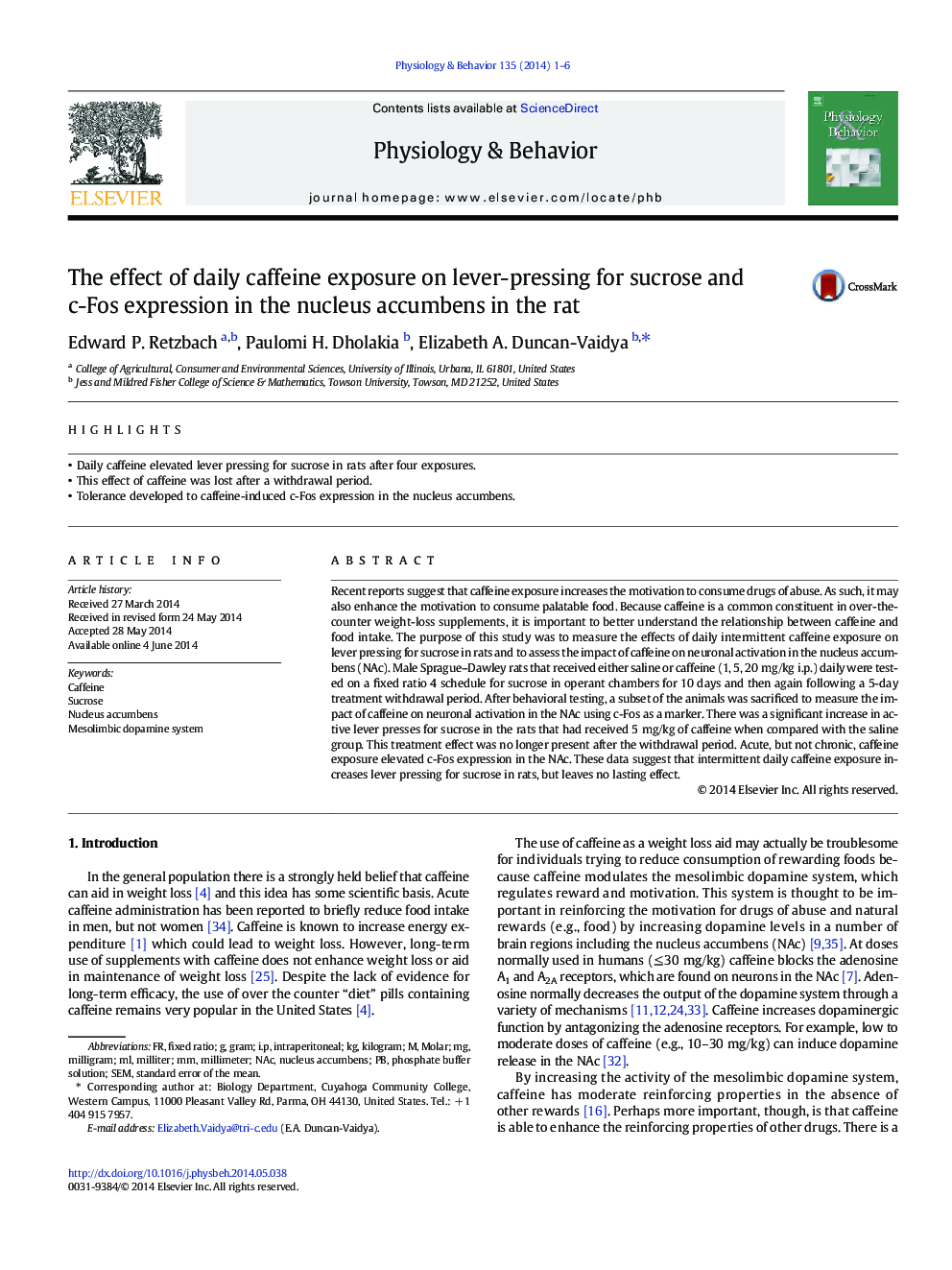| Article ID | Journal | Published Year | Pages | File Type |
|---|---|---|---|---|
| 2844238 | Physiology & Behavior | 2014 | 6 Pages |
•Daily caffeine elevated lever pressing for sucrose in rats after four exposures.•This effect of caffeine was lost after a withdrawal period.•Tolerance developed to caffeine-induced c-Fos expression in the nucleus accumbens.
Recent reports suggest that caffeine exposure increases the motivation to consume drugs of abuse. As such, it may also enhance the motivation to consume palatable food. Because caffeine is a common constituent in over-the-counter weight-loss supplements, it is important to better understand the relationship between caffeine and food intake. The purpose of this study was to measure the effects of daily intermittent caffeine exposure on lever pressing for sucrose in rats and to assess the impact of caffeine on neuronal activation in the nucleus accumbens (NAc). Male Sprague–Dawley rats that received either saline or caffeine (1, 5, 20 mg/kg i.p.) daily were tested on a fixed ratio 4 schedule for sucrose in operant chambers for 10 days and then again following a 5-day treatment withdrawal period. After behavioral testing, a subset of the animals was sacrificed to measure the impact of caffeine on neuronal activation in the NAc using c-Fos as a marker. There was a significant increase in active lever presses for sucrose in the rats that had received 5 mg/kg of caffeine when compared with the saline group. This treatment effect was no longer present after the withdrawal period. Acute, but not chronic, caffeine exposure elevated c-Fos expression in the NAc. These data suggest that intermittent daily caffeine exposure increases lever pressing for sucrose in rats, but leaves no lasting effect.
